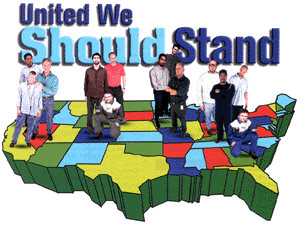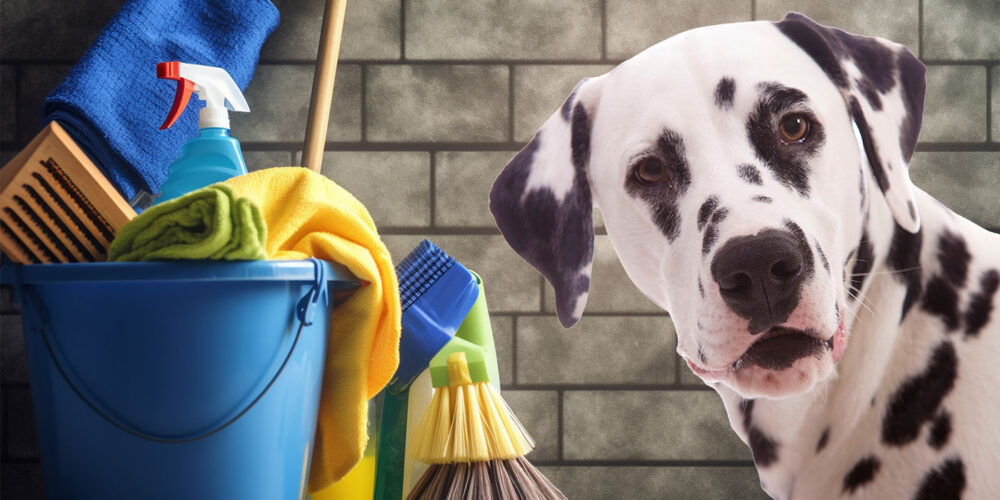
We started out pretty much just joking around, but then we got a little more serious. I think the more serious we got, the more we realized we were probably dreaming an impossible dream. Eight radical-thinking people gathered together to discuss the possibility of starting some sort of union or association intended to become the voice of metal and refinishing techs throughout the collision industry.
We all posted regularly on one or more of the Internet bulletin boards available at various collision-related Web sites. When a particularly long string of messages involved the subject of unions, we began exchanging e-mail among the eight of us. We first discussed the advantages of a collision repair union:
• There’s strength in numbers;
• There’d be no more free work from techs;
• Better and more affordable training could be made available;
• Better working conditions and benefits would result; and
• We’d have more authority to determine repair procedures.
Then, we discussed the disadvantages:
• Because of the need for a large membership base, a lot of lesser-skilled techs would undoubtedly obtain membership.
• If membership requires certain quality standards to be met or exceeded, we may find ourselves hard pressed to recruit enough members to gain the strength required to stand tall.
• The union or association could be alienated from a portion of the industry.
• A lot of shops might not hire members because of the increased cost.
Though most of us were undecided about whether the advantages would outweigh the disadvantages of a union, we were all decided on one thing: Collision repair workers need a voice. Someone needs to go to bat for the quality technician who struggles to make a living in today’s collision repair industry.
Low Man on the Totem Pole
While there are several associations for the collision industry, we all agreed that they tend to focus more on the needs of owners and managers than those of body shop technicians. Even those associations that allow techs to join have a tendency to show favor to management. So metal and paint techs are often left feeling as though their opinions are less welcome in the industry than the opinions of their employers.
While body shop owners and managers would like their techs to believe they have the techs’ best interests in mind, techs know what’s really most important to a business. Obviously, a business has to operate at a profit to stay in business and to consequently provide jobs for its employees. But let’s not forget where the profit comes from. Collision techs are fully aware that the cheaper shop owners can get the work done, the more profit they can make for themselves.
Techs are also fully aware that as the insurance industry has put the squeeze on the collision industry over the years, shop owners have turned to techs to make up the difference. It’s easier for shop owners to stand up to techs than to the insurance industry. For this reason, techs’ wages have remained virtually stagnant for more than a decade in the interest of maintaining shop owners required levels of profit. Meanwhile, shop owners and managers have received cost of living increases, justifying the increases with the statement, "It’s our business and we’ll run it our way."
Stagnant wages, however, have more techs saying the "U" word — as in union — than ever before. It seems the only techs not talking union these days are those leaving the industry and those who’ve completely given up on finding a solution.
In my opinion, too many shops also allow insurance companies to dictate the repair process. Many times, I’ve been in situations in which I determined a part — let’s say a unibody frame rail — needed to be replaced, but a shop owner/manager and an insurance adjuster talked it over and decided I should repair the rail. Ninety-five percent of the time, I’ve ended up replacing the part after attempting to repair it.
If insurance companies want to throw away money just for the feeling of control they get when they decide how to repair a vehicle, I don’t mind getting that money. But a properly structured and properly run organization of collision techs might give techs the leverage to demand the final say on repair procedures. Instead of tying up my work area or the shop’s frame equipment while I wait for Mr. Control to re-inspect the part I wanted to replace, I could replace the part and move on to the next repair.
What’s In It For Me?
If so many techs are talking about uniting, why are so few collision industry employees getting involved in some sort of organized movement? One of my cohorts once said, "Trying to organize a bunch of collision techs is like trying to organize a bunch of Siamese cats." He was right. Bodymen and painters, for the most part, are very independent thinkers who tend to shy away from long-term commitments. The thought of joining a group and standing up for a common cause seems to scare most of them away from associations.
Why is that?
I think many techs just aren’t "joiners" and probably shy away from any situation in which they don’t expect to see immediate positive results. Many have seen employers join collision industry associations but haven’t noticed any difference in the shop’s relationship with insurance companies or with the general public. Until shops that are affiliated with various associations start showing a noticeable difference between themselves and the rest of the industry, the associations will be hard pressed to get techs to join them.
My cohorts and I also agree that techs need an association dedicated solely to the collision repair worker with minimal — if any — involvement from outside influences, including shop owners and managers. We also agree that there must be immediately noticeable benefits to potential members as an incentive to join the association.
One such benefit suggested by several members of the group was training and certification. As bulletin board poster "Frame Rail John" explained, we need "something that sets this group of technicians to the highest standards of certification so that when those standards are accomplished, members will be sought after by the best shops willing to pay our worth." By making better training and certification programs available to its members, could an association create a higher demand for its members services? If so, an association would create an incentive for potential members to join.
As another benefit, bulletin board poster "Heavy Wreck" suggested making technical service bulletins (TSBs) from car manufacturers available to all members. "Heavy" brings up a good point: Many shops don’t bother to make this information available to their technicians. If association members received TSBs in the mail as soon as availability permitted, they’d be even better informed and better equipped to provide the best service available to the industry.
The Consumer Trump Card
Would these well-informed and well-trained association members be able to demand higher wages than the average body tech? Increased wages would certainly provide the incentive needed to attract potential members, but how would we motivate employers to pay the higher wages? My best suggestion involves more communication with the average consumer. A collision repair association should promote itself to the general public if it’s to create a demand for the services provided by its members. How much respect would the American Medical Association (AMA) get if the general public had never heard of it?
Agreeing, "Heavy Wreck" says, "The consumer has to be our trump card."
By creating a demand for the services of association members, we’d create a demand for membership in the association. If the association worked to establish a visibility similar to that of ASE, we could certainly begin to earn the trust of the average consumer. And by earning the trust of collision repair consumers nationwide, the association would gain the leverage necessary to stand up to those who’ve controlled our wages for so many years.
The operative word in this situation, of course, is "trust." "We’ve always had a two-tiered industry: shops that did professional quality repairs and gave good service and third-rate hack shops," says one of my cohorts. Over the years, an increasing portion of the collision industry’s customer base has become weary of the poor quality practices taking place in so many shops. These people are afraid to trust body shops because of previous personal experiences and/or stories they’ve heard about the experiences of family, friends, neighbors, coworkers, etc.
"It’s very difficult to earn the trust of your customer because of what goes on in so many other shops and because of what the insurance adjusters tell customers about the shops," says Mark Magee, a body shop estimator at Northgate Lincoln-Mercury in Tampa, Fla. "Even with all the bad publicity insurance companies get, people still trust them more than they trust the shops."
To shed the collision industry’s tarnished image, a technicians’ association would have to establish and enforce strict quality standards to determine whether its members are qualified to join and retain membership. After all, we wouldn’t want this to be like a union where anybody who meets the monetary requirement can join. First-class quality repairs would have to be produced by all members if the association is to earn the trust of the general public. Repairs would have to be closely and continually monitored to ensure members are producing only the best repairs humanly possible.
United We Should Stand
Quality-conscious technicians and shop owners alike could certainly benefit from an association with strict quality standards, especially after the group earns the trust and support of the public. The problem, however, lies in getting the whole project started. As with anyone trying to do the right thing, the wrongdoers in the collision industry would be against us. The lesser-quality shops and techs would insist that the association is nothing more than a group of prima donnas. Even today, many shops that take a stand for top quality are alienated by some in the collision industry. I think that may be part of the reason these dreams of a techs’ association haven’t — and probably will never — become reality.
If such a union or association isn’t probable, what can shop owners do to make techs feel more respected and less like they need to unionize? Stand up to the insurance industry. As long as the insurance industry is given full control over our prices and procedures, techs will always feel like insurers have control over our paychecks and even our lives. The best way to show respect to your technicians is to show them that their skills and experience are highly valued. We don’t feel valued when our repair recommendations are ignored and our work is given away free or dirt cheap.
I think the eight of us knew we’d encounter a great deal of opposition, even from people who could greatly benefit from such a project. As much as techs need a voice in the collision industry, the thought of all the fight it would take to provide that voice makes me just want to walk away quietly and forget about it.
Writer Paul Bailey, a contributing editor to BodyShop Business, has been a collision repairman for 17 years and is an avid photographer and writer who maintains a consumer-awareness Web page in his spare time. He resides in Florida with his wife, Cathy.













